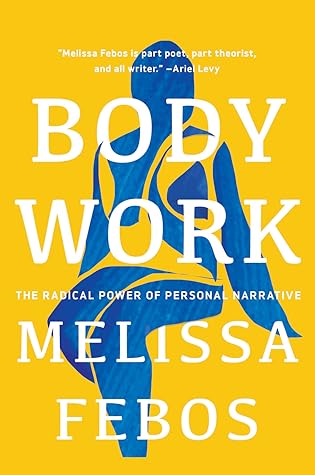More on this book
Community
Kindle Notes & Highlights
Read between
September 25 - October 1, 2025
writing has become for me a primary means of digesting and integrating my experiences and thereby reducing the pains of living, or if not, at least making them useful to myself and to others.
There is no pain in my life that has not been given value by the alchemy of creative attention.
Writing is a form of freedom more accessible than many and there are forces at work that would like to withhold it from those whose stories most threaten the regimes that govern this society. Fuck them. Write your life. Let this book be a totem of permission, encouragement, proof, whatever you need it to be.
the power of secrecy could become a prison.
understood in a new way that resistance to the lived stories of women, and those of all oppressed people, is a resistance to justice.
As Elissa Washuta, a Native essayist, writes: “I am subject to the wants of a country conjured up by invaders who raped, maimed, and killed until they could settle their dream like a film over the land that held the treasure they wanted. Every day, the universe reminds me that, yes, I am safe now, but I am in America. I could be gouged out again.”
It is not enough for the people of such identities to cast off shame and demand justice. The listeners must join them, and for that, we need to hear their stories.
I want to feel on the page how the writer changed. How the act of writing changed them.
The stigma of victimhood is a timeworn tool of oppressive powers to gaslight the people they subjugate into believing that by naming their disempowerment they are being dramatic, whining, attention-grabbing, or else beating a dead horse.
A little bit after a long time of nothing can be easy to mistake for more than it is.
I have been insisting for my entire life that I’m not an angry man-hating lesbian. That I hate the systems, not the people. Of course I do not hate every man. The very fact that I, and so many women, are compelled to incessantly reassure them of this is more evidence of our continued oppression.
I want to be awake to all my choices.
Perhaps part of the reason it feels so hard to write sometimes is this: having to be aware of my decision making. Not just in the action (or more often, inaction) in my life, but being confident enough to support the choices I make while writing something. It is much easier to simply think about.
we who have recovered from a thing are often the best detectors of it.
The most meaningful way to awaken to any truer story of your own life is to surround yourself with people and works of art that are also interested in this project.
Queerness does not have to be healthy to be human. No one of any race need prove their respectability by the sex that they have or purport to have. We do not have to earn our humanity by being any kind of perfect.
Fear, like pain, can narrow perspective to a pinprick. It is necessarily self-centered.
How hard it can be to differentiate the unspoken from the unspeakable.
These escapes made my childhood bearable. Not because I had a difficult childhood, but because childhood is difficult: powerlessness assured, trauma unavoidable, consciousness a weird and indefinable burden that we have no way of contextualizing.
“All those years I thought that I had been running away from my past I had, in fact, been working my way steadily back to it,”
My art will tolerate no false god.
Empowerment often begins more subtly, with only a narrow ledge inside ourselves wide enough to hold a crumb of resistance.
I often wonder why this is the case; why must it be so much harder to get a footing on the path out of these powerles feelings. It's true that writing helps sort out one's mind and I want to use it as a tool more often than I revert to simply ruminating on the intimidating existence of disempowerment. The most important thing is that we can find and build that resistance at all.
You make the past known in order to know yourself as changed.
What a terrible predicament: to not know if love is conditional and yet to understand that the only way to find out is to risk losing it.
When I say that I have no regrets, it might sound arrogant. What I mean is that I have returned to the parts of my past that pained me and uncovered the aspects that I most wanted to avoid. I have grieved and I have taken responsibility. I have revised the story of my victimhood and my culpability. I have completed what was interrupted, what stuttered like a skipping record for decades. I have brought to it my questions, like some oracle, made myself a supplicant to the past, asked her what I could not when I was her, and told her what she could not tell herself. Through this process, I have
...more
There is hope in acceptance. We are not doomed to feel regret forever if we do not want to. Though it usually implies that there is sense of loss about a decision made (or not made), perhaps forgiveness can provide a path away from regret and the nasty consequences of it.
I have worshipped people the way that others worship gods, have looked to humans and chemicals for the kind of love we can only expect from a divine source.
I have found a church in art, a form of work that is also a form of worship—it is a means of understanding myself, all my past selves, and all of you as beloved.


